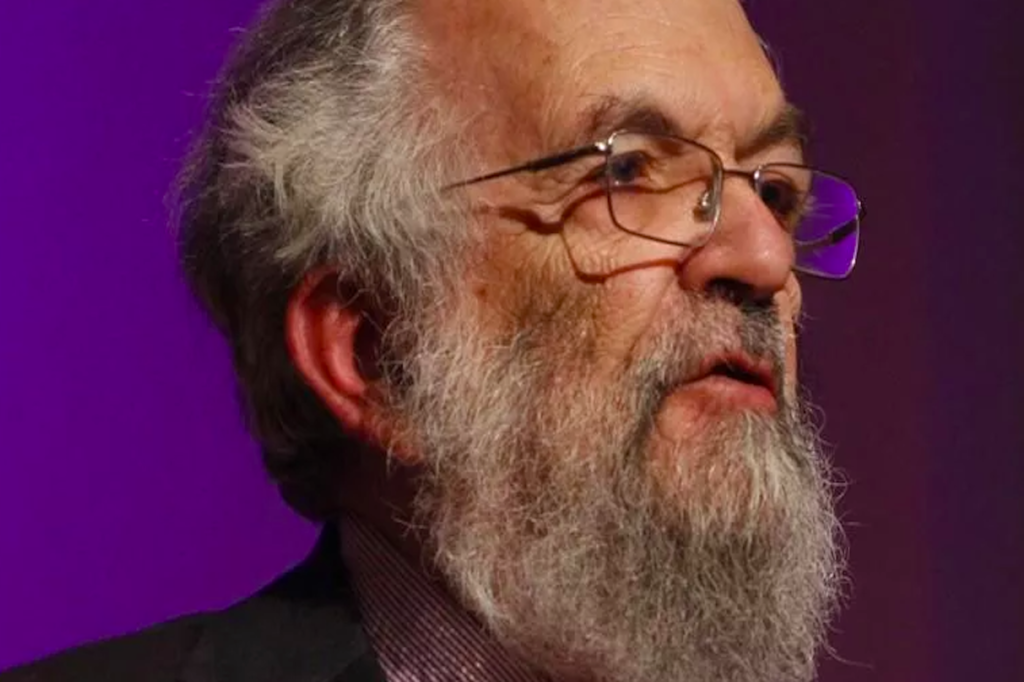A handful of books made a deep impression on me when I was a student at Harvard Law School in the late 1970s and early 1980s. One was The Concept of Law, by the great Oxford legal philosopher H. L. A. Hart. I first encountered it in a jurisprudence course taught by Charles Fried, then again in a seminar taught by Ronald Dworkin, who was teaching in the Department of Philosophy at Harvard as a visiting professor, and who was Professor Hart’s successor in the Chair in Jurisprudence at Oxford. Dworkin was widely regarded as the leading critic of Hart’s “legal positivism” (a concept on which I say a bit more below). Two other books were by writers who were famous for published debates with Professor Hart: Lon L. Fuller, The Morality of Law, and Patrick Devlin, The Enforcement of Morals. Three others were by former students and Oxford colleagues of Hart’s: Dworkin, Taking Rights Seriously, John Finnis, Natural Law and Natural Rights, and Joseph Raz, Practical Reason and Norms.
Reading these books and discussing them in courses and seminars led me to want to study legal philosophy more deeply and to do it at Oxford University—perhaps with a view to making my career as a scholar and teacher in the field. I applied and was fortunate enough to be accepted. I was particularly interested in Finnis’s work and the tradition of natural law theory, which he was revitalizing and in certain respects reforming, so I asked to be assigned to him for supervision. That request was granted, but Dr. Finnis was on leave when I arrived in Oxford, so I was assigned to Dr. Raz. He left a note in my mailbox at New College (which had been new in 1379) welcoming me and asking me to send along an essay on any topic in philosophy of law that interested me, and then arrange for a meeting (known in Oxford as a “supervision”) with him to discuss it. I had been further developing a paper on “legalism” that I had written for a course at Harvard, so I dropped off a draft in Raz’s mailbox at Balliol College, where he was a Fellow, together with a note saying that I was available to meet at any time convenient to him. He set a day and time, and I showed up, eager to hear what he had to say.
He greeted me kindly but minced no words about my paper. “Mr. George—Robert, is it?—there are places where the kind of paper you have written would count as philosophy, but Oxford is not one of those places.” I was stunned. I had gotten an A at Harvard on the shorter, less developed version of the paper. He continued: “Your claims are very broad, grandiose. I don’t know whether I agree with them or not, because I’m not sure what they mean. You need to state a proposition that I can agree or disagree with, then provide the reasons why I should agree with it and rebut the reasons I might suppose I have for disagreeing with it.” He said all this in his very quiet voice and thick Israeli accent. I was crushed. I had, I suppose, expected to be patted on the head and told how fine my work was. Dr. Raz was clearly not a mean man, and I knew that he was a brilliant and extraordinarily accomplished one—in the very field I was hoping to enter. And he was telling me that what I had written wasn’t just poor philosophy, it wasn’t philosophy at all—at least as philosophy is understood in Oxford. I was thinking “I’m obviously in the wrong place. I should return to Harvard or someplace like it where the kind of philosophical work I’m accustomed to doing is at least considered acceptable.”
He perceived that I was stunned and hurt. Taking out a blank sheet of paper and drawing a vertical line down the middle of it, he said, “look, I want you to think of a proposition—one that some people deny but you think should be affirmed. It doesn’t matter what it is. Then I want you to list the reasons for affirming it on the left side of the line and the reasons for denying it on the right. Come back next week, and we’ll discuss the competing reasons. Then you can write your paper.”
Start your day with Public Discourse
Sign up and get our daily essays sent straight to your inbox.The Analytic Tradition
That’s how Joseph Raz, the master of analytic philosophy of law, introduced me to the analytic tradition—a way of doing philosophy that puts a premium on logical rigor, precision, and clarity. Of course, as someone interested in natural law theory, I also recognized that he was simply requiring me to do what Thomas Aquinas and the other great scholastic thinkers did—namely, reason your way to a conclusion by considering the evidence and best arguments to be marshaled on both or all sides of a disputed question. It’s what Raz himself did—brilliantly—in Practical Reason and Norms and his other writings. It is what Hart and Finnis did, too. It wasn’t long before I was a convert to the faith, not simply because my teacher was demanding that I take a certain approach, but because I came to see and deeply appreciate its value.
Raz required me to do what Aquinas and the other great scholastic thinkers did—namely, reason your way to a conclusion by considering the evidence and best arguments to be marshaled.
When Dr. Finnis returned from leave, he reinforced what I was learning from Dr. Raz. Working with the two of them was as exhilarating as it was demanding. Getting a dubious argument, however clever or rhetorically attractively packaged, past one of them was a Herculean feat. Getting a dubious argument past both of them was impossible. This is something Professor Dworkin learned on many occasions in the lively seminars the three of them offered together in the 1980s, occasionally joined by the then-retired but still engaged Professor Hart. These meetings would often begin with Dworkin putting a proposition and set of arguments on the table, then Raz and Finnis would go to work pinpointing where he had slipped the rabbit into the hat.
Whether in those seminars or in supervisions with graduate students like me, Raz and Finnis examined the most significant assertion or assertions from every conceivable angle, forcing their interlocutors and students to consider everything it presupposed and entailed. They taught us—by precept and example—to be exceptionally careful in affirming any proposition, because in affirming it one is also affirming whatever it presupposes and all that it entails—a lesson I drive home to my own students.
There are many knocks against analytic philosophy generally and analytical jurisprudence in particular—it’s all just nitpicking, it’s arid logic-chopping, it’s dry and bloodless, it’s of no practical use, it ignores big questions or, by breaking them up into smaller questions, evacuates their human significance. When directed at certain analytic philosophers, those criticisms are not entirely without merit. But Raz, along with Finnis and some of their predecessors, such as Herbert Hart, Elizabeth Anscombe, and Philippa Foot, show that analytical methods can be profoundly illuminating of issues of genuine human significance—including the big questions.
Joseph and I became and remained friends. He was an accomplished amateur photographer and kindly allowed me to use architectural photographs he had taken on the covers of three of my books. He also contributed original essays to collections of writings on matters of philosophy of law that I edited for Oxford University Press.
Joseph was secular and liberal, while I am Catholic and socially conservative. But these differences caused no difficulties between us. He had other friends and academic colleagues who were religiously observant (including some like Professor Finnis who were Catholic) and some other leading Anglophone philosophers of the time were, or would soon become, very publicly Catholic, including Elizabeth Anscombe, Michael Dummett, Charles Taylor, Peter Geach, Alasdair MacIntyre, Nicholas Rescher, and Bastiaan van Fraassen. Most of them weren’t brought up with religious faith but were converts from secularism. Joseph would sometimes ask me questions about what was going on in the Church. Naturally, he was especially interested in how the Church was handling or thinking about this or that controversial moral issue (e.g., human cloning, nuclear deterrence, the Iraq War). He was by no means unaware that Catholicism valued philosophical reflection and had over the centuries nurtured what Sir Isaiah Berlin called “the central tradition” of thought about ethical and other philosophical questions in the West.
Legal Positivism
Raz’s fundamental intellectual commitments were to “positivism” in legal theory (though he deprecated labels) and to a “perfectionist,” autonomy-based conception of liberty in political theory. By the former, I mean the idea that law can be identified as such by reference to its sources, independently of its moral evaluation. On this point, he sided with Professor Hart against Professor Dworkin in their famous dispute. In making his case, Raz developed the extremely helpful concept of “exclusionary reasons,” that is, as he put it in Practical Reason and Norms, “second order reason[s] to refrain from acting for some reason.” One may have a reason to do something but also a “second order” reason to refrain from acting on, or considering, that (first order) reason. Laws often guide behavior precisely by providing second order reasons for action or restraint. Legal norms can provide conclusive reasons to stop deliberating among various, perhaps competing, first-order reasons and perform a particular act. That may seem obvious, but understanding and explaining how legal norms guide the actions of citizens and officials by providing second-order reasons was a breakthrough insight that shed light on a host of related matters pertaining to the nature and functions of law.
Raz’s concept of exclusionary reasons was a breakthrough insight that shed light on a host of matters pertaining to the nature and functions of law.
The normativity and authority of law were central concerns of Raz’s from the beginning of his career to the end of his life. His own teacher, Professor Hart, who had encouraged the young Joseph Raz to study at Oxford after meeting Raz during a visit to Israel—Raz pointed out to Hart an error in Hart’s work—had always regarded his own treatment of the nature of legal authority and obligation as less than fully satisfactory. As a legal positivist, Hart did not want to conceive legal obligation as a species of moral obligation. But in what sense, then, was it obligation? Exactly what kind of reasons for action and restraint, if not moral reasons, do valid laws provide? Raz famously set out and defended the “service conception” of authority (and thus the authority of law). On this account, authority’s function is to provide the service of enabling reasonable persons to successfully do or achieve what they already have a moral duty to attempt to do or achieve. Consequently, laws have authority inasmuch—or insofar—as they identify what those whom they subject to legal requirements should do, more reliably and fruitfully than they could or would do acting on their own deliberation and judgment without the benefit of law’s prescription (or proscription). We can rightly judge that we ought to obey the law, or these laws, or at least consider them presumptively binding, because we have reason to suppose that by allowing the law to guide us we would generally do better than acting in each case on the basis of our own judgment, independent of the law’s guidance.
The Centrality of Autonomy
Raz’s theory of political morality was set forth in his most influential book, The Morality of Freedom, in which he argued that law and policy should reflect a vision of the human good, with the good of personal autonomy—enabling people to be “authors of their own lives”—at its heart. Raz rejected equality-based, or equality-focused, and “anti-perfectionist” forms of liberalism that were propounded by the leading liberal theorists of the day, especially John Rawls and Ronald Dworkin. Anti-perfectionism is the idea that in designing institutions and making law and policy, particularly where we are considering placing limitations on individual liberty, we should avoid acting on (or we should be neutral as between competing) controversial conceptions of the human good—of what constitutes or detracts from a valuable and morally worthy way of life. Raz proposed instead a “perfectionist” liberalism. What made Raz’s perfectionism “liberal” was precisely the centrality of autonomy, which Raz regarded as itself an intrinsic value: something good in itself, valuable for its own sake. Yet he held that autonomy has value only when exercised in morally good ways. There is no value in exercising autonomy in a morally wrongful manner.
Joseph and I had a long-running debate on autonomy and its value. We agreed that autonomy, when exercised immorally, is valueless. To me, this revealed that autonomy is not something intrinsically good. In fact, it is not, strictly speaking, a value at all, but rather a condition for the realization of other values, including what, following John Finnis, I call the (intrinsic) value of practical reasonableness. Although I failed to persuade Joseph to shift his view of the matter, he worked with me to help make my argument against his position as strong and compelling as possible. He was a true—a Socratic—philosopher: a truth-seeker. He had convictions, many of them strongly held, but he never sought to immunize them against criticism, nor did he allow himself to fall so deeply in love with his opinions that he valued them above truth itself.
Although Raz was not a libertarian or a utilitarian—indeed, he was a forceful critic of utilitarianism, principally (and rightly, in my view) because it falsely presupposes a commensurability of basic values as they figure in options for morally significant choosing—he is often compared with the great nineteenth-century liberal philosopher of freedom John Stuart Mill. Raz’s defense of liberty, like Mill’s, eschewed anti-perfectionism and celebrated liberty as central, indeed indispensable, to human well-being. The right to liberty, or more precisely, to the particular liberties to which people have rights, is not an “abstract right,” generated by, for example, a formal principle of equality or fairness. Respect for liberty is necessary, not because a principle demanding respect for liberty (or this or that set of liberties) would be among the principles chosen in Rawls’s “original position” behind a “veil of ignorance,” where one had no knowledge of one’s beliefs about the human good (or of anything else that made one different from other people), but rather because autonomy—being the author of one’s own life—is a central element of the all-around flourishing of any and every human being.
Joseph Raz, philosopher of freedom, was born to Jewish parents in Mandate Palestine on March 21, 1939. He died in London on May 2, 2022. He is remembered with admiration and gratitude by his academic colleagues and, especially, by those of us fortunate enough to have been his students. His writings are his monument. They will outlast any granite or marble.














